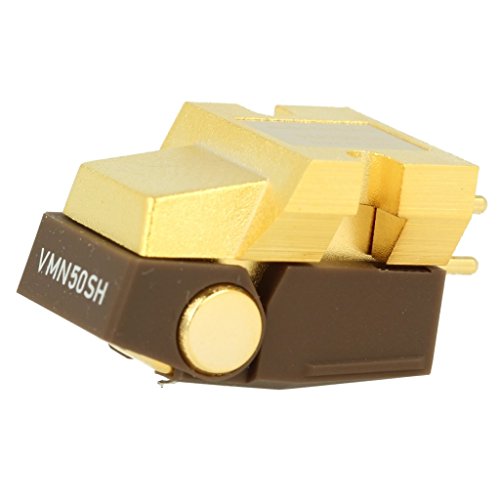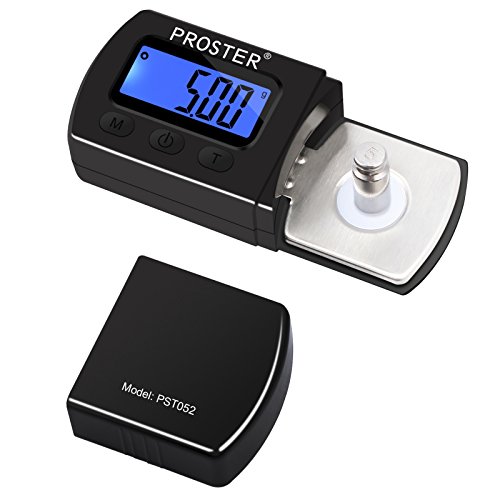Everything You Need to Know About DJ Turntable Cartridges

- 1. Everything You Need to Know About DJ Turntable Cartridges
- 1.1. What Is A DJ Turntable Cartridge?
- 1.2. The Structure of a Turntable Cartridge
- 1.3. Types of DJ Turntable Cartridges
- 1.4. Factors To Consider When Choosing A DJ Turntable Cartridge
- 1.4.1. Sound Quality
- 1.4.2. Stylus Type
- 1.4.3. Tracking Ability
- 1.4.4. Output Level
- 1.4.5. Compatibility with Tonearms
- 1.4.6. Budget
- 1.4.7. Installation and Maintenance
- 1.5. Significance in DJing
- 1.6. Maintenance and Care
- 1.7. Conclusion
In the world of DJing, the turntable is more than just a device; it's a canvas for artistic expression. At the heart of this musical artistry lies the DJ turntable cartridge, a fundamental component that directly affects the quality and character of sound produced. Understanding these tiny yet pivotal devices is crucial for any aspiring or seasoned DJ. This comprehensive guide aims to delve into the depths of DJ turntable cartridges, exploring their types, functionality, and significance in the realm of DJing.
What Is A DJ Turntable Cartridge?
A DJ turntable cartridge is a crucial component of a vinyl record player used primarily by DJs. It's a small device that houses the stylus (needle) and the generating elements, which convert the physical movements of the stylus as it tracks the grooves on a vinyl record into electrical signals. These electrical signals are then amplified and sent to speakers, allowing the listener to hear the recorded audio.
In the realm of DJing, cartridges play a crucial role in delivering sound quality, tracking ability, and overall performance during mixing and scratching. DJs often have preferences for specific cartridges based on factors like sound quality, durability, tracking ability, and the type of music they play. The choice of cartridge can significantly affect the sound and performance of a turntable, making it an essential consideration for DJs and audiophiles alike.
The Structure of a Turntable Cartridge
A DJ turntable cartridge comprises several key elements:
- Stylus or Needle: This is the tip of the cartridge that makes contact with the vinyl record. Its shape and material significantly impact the quality of sound produced.
- Cartridge Body: The structure holding the components together and transmitting the stylus' vibrations to the rest of the system.
- Magnet or Coil System: Responsible for converting mechanical vibrations into electrical signals. Moving magnet (MM) and moving coil (MC) are the two primary types of systems used in cartridges.
Types of DJ Turntable Cartridges
- Moving Magnet (MM) Cartridges: MM cartridges are characterized by their ease of use and durability. They generate a strong output signal, making them compatible with a wide range of preamps and mixers. They are generally preferred by DJs due to their affordability and compatibility with various turntable setups.
- Moving Coil (MC) Cartridges: MC cartridges, on the other hand, are revered for their exceptional sound quality. They typically produce a lower output voltage but offer superior accuracy and detail in sound reproduction. MC cartridges are often favored by audiophiles and professional DJs aiming for premium sound quality.
- Spherical vs. Elliptical vs. Shibata Stylus: The stylus shape significantly influences the tracking ability and fidelity of the cartridge. Spherical styli are durable and less prone to damage but may sacrifice some sound quality. Elliptical and Shibata styli offer enhanced tracking and higher sound accuracy, but they are more delicate and require careful handling.
Factors To Consider When Choosing A DJ Turntable Cartridge
Choosing a DJ turntable cartridge might seem like a straightforward task, but for DJs and vinyl enthusiasts, it's a crucial decision that significantly impacts sound quality and overall performance. With a multitude of options available in the market, it's essential to consider various factors before making a selection. Here's a comprehensive guide to the crucial factors when choosing a DJ turntable cartridge:
Sound Quality
The primary objective of any cartridge is to reproduce high-quality sound. Different cartridges have varying sound characteristics, such as warmth, brightness, and clarity. DJs should look for cartridges that complement their music style and preferences. Some prefer a more neutral sound, while others might lean towards a warmer, bass-heavy tone. It's advisable to listen to different cartridges on the same system to identify the one that best suits your needs.
Stylus Type
The stylus is the part of the cartridge that directly contacts the record. Cartridges often come with different stylus types, such as spherical, elliptical, or line contact. Spherical styli are more durable and less prone to damage, making them ideal for scratching and back-cueing. Elliptical and line contact styli generally offer better sound quality and tracking ability, suitable for precise listening and mixing.
Tracking Ability
The tracking ability of a cartridge refers to its ability to stay in the record groove without skipping or causing excessive wear. Optimal tracking prevents distortion and preserves the life of both the stylus and the record. Higher quality cartridges tend to have superior tracking abilities, especially useful for DJs who perform aggressive scratching or cueing.
Output Level
Cartridges come with different output levels, typically categorized as moving magnet (MM) or moving coil (MC). Moving magnet cartridges usually have a higher output level, making them more compatible with a broader range of mixers and preamps. Moving coil cartridges, on the other hand, are known for their higher accuracy and detail but might require specific preamps or adjustments on the DJ setup.
Compatibility with Tonearms
Not all cartridges fit universally on every turntable tonearm. Check the compatibility of the cartridge with the tonearm of your turntable. Some turntables have specific requirements regarding cartridge weight and compliance, so it's essential to ensure the cartridge selected is suitable for the tonearm of your turntable.
Budget
Cartridges come in a wide price range, and while cost doesn’t always guarantee the best quality, it often reflects the overall performance. Consider your budget and try to find the best quality cartridge within that range. Investing in a good cartridge can significantly enhance the overall DJ experience and the sound quality delivered to the audience.
Installation and Maintenance
Consider the ease of installation and maintenance. Some cartridges might be more complex to install or align properly. Additionally, consider the availability of replacement styli and the cost associated with maintaining the cartridge over time.
Significance in DJing
The choice of a DJ turntable cartridge is a deeply personal decision for DJs. It can affect the way music is played and heard, influencing everything from sound quality and accuracy to durability and adaptability to different mixing styles.
A DJ's preferred music genre and mixing technique play a significant role in the cartridge selection process. Hip-hop and scratch DJs might lean towards robust, durable cartridges that can handle heavy back-cueing and scratching, while those focusing on hi-fi mixing might prioritize precision and sound quality.
Maintenance and Care
Proper maintenance is vital for the longevity and performance of DJ turntable cartridges. Regular cleaning of the stylus, checking alignment, and ensuring correct tracking force are essential for preserving the quality of sound and extending the cartridge's lifespan.
Conclusion
DJ turntable cartridges, often overlooked, play a crucial role in the realm of DJs, subtly influencing the craft of mixing and audio replication. A DJ's performance and the audience's sonic journey can be greatly enhanced by the careful selection of cartridge types, stylus shapes, and a deep comprehension of their capabilities. With the ongoing evolution of technology, the landscape of DJ cartridges is destined to witness continual advancements, further enriching the art of DJing in ways yet to be discovered.











